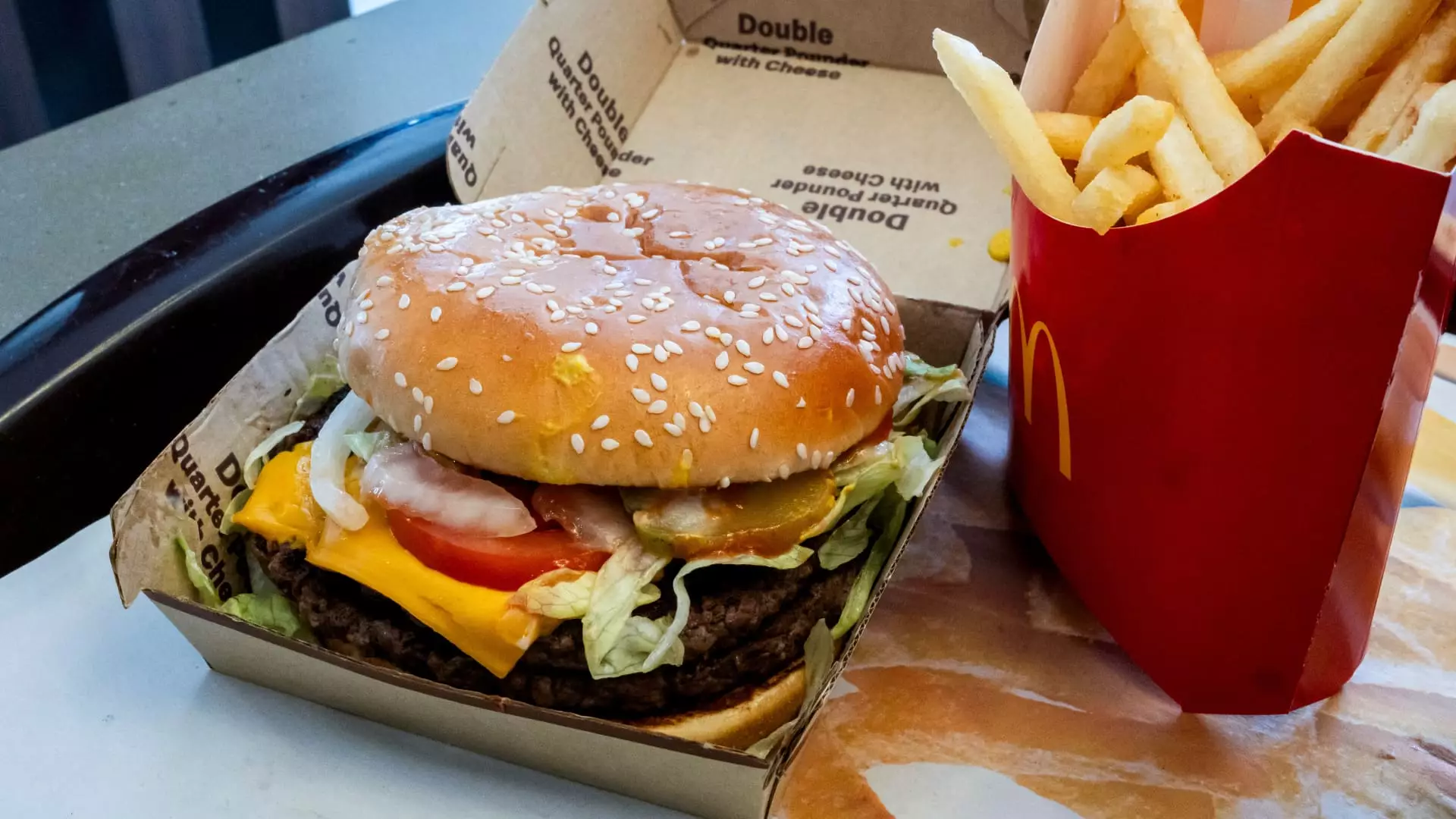In recent news, McDonald’s faced a significant crisis when it was discovered that its Quarter Pounder burgers were implicated in a deadly E. coli outbreak. This incident has raised critical concerns regarding food safety practices at the fast-food giant, followed by a swift removal of the contaminated menu item from approximately 900 locations across the United States. E. coli, often associated with unregulated food sources, poses a severe health risk, leading to hospitalization and even fatalities in some cases. As the investigation continues, public trust in the brand takes a hit, necessitating a deep examination of the circumstances surrounding this outbreak.
Health authorities, including the Food and Drug Administration (FDA) and the Centers for Disease Control and Prevention (CDC), have launched extensive investigations to identify the source of the outbreak. Although initial testing by the Colorado Department of Agriculture found no traces of E. coli in the beef patties sourced from impacted restaurants, attention has turned to slivered onions, specifically those supplied by Taylor Farms. This shift emphasizes how sometimes, common ingredients can lead to uncommon peril within a well-established supply chain.
McDonald’s has taken decisive steps, including severing ties with Taylor Farms for onion supply indefinitely. This demonstrates the company’s commitment to consumer safety, albeit after an unfortunate incident that might have been avoided with more rigorous supplier checks. By re-evaluating their supply chain, McDonald’s is executing an essential strategy to eliminate potential contamination risks. The fast-food giant is also adjusting its menu by temporarily eliminating slivered onions from its Quarter Pounder in affected restaurants, serving as a proactive measure to prevent further spread of the disease while the investigation unfolds.
The outbreak has led to a troubling 75 reported cases across 13 states, with significant repercussions. Among those affected, 22 individuals required hospitalization, and reports confirmed that some developed severe complications such as hemolytic uremic syndrome—a condition that can cause kidney failure. Such statistics are alarming and serve as a crucial reminder of how foodborne illness can escalate into a widespread public health crisis.
Moreover, the emotional toll on consumers cannot be overlooked. In light of these developments, McDonald’s USA President Joe Erlinger publicly apologized to customers who are feeling scared or uncertain about their food choices. This sentiment is necessary in consumer-driven markets, especially after health crises. It illustrates how transparency and accountability are imperative in restoring public confidence.
Impact on Business and Financial Outlook
The outbreak has also affected McDonald’s financial landscape, with shares plunging 7% since the connection between the E. coli cases and the restaurants was established. The fast-food chain is poised to report its third-quarter earnings shortly, and there are questions about how the outbreak will influence sales figures moving forward. Historically, food safety incidents lead to declines in customer traffic, as patrons may seek alternatives due to health concerns.
As operations incrementally return to normal, customers can expect the Quarter Pounder to make a gradual comeback, depending on the company’s resupply capabilities. However, the looming challenges regarding food safety awareness and accountability within large-scale restaurant operations remain. The health scare serves as a learning opportunity not only for McDonald’s but for the entire industry, shedding light on the need for rigorous checks at every level of production and supply to ensure consumer safety.
The recent E. coli outbreak linked to McDonald’s serves as a stark reminder of the ongoing challenges businesses face regarding food safety. The fast-food giant’s rapid response to address the crisis reflects awareness of the significant responsibility it holds toward its customers. Moving forward, McDonald’s must bolster its supply chain protocols and cultivate a culture of meticulous safety standards to mitigate risks and restore consumer trust. As the investigation continues, both the company and its patrons must remain vigilant and informed, transforming a challenging situation into a pivotal moment for improvement and accountability in the food industry.

Leave a Reply